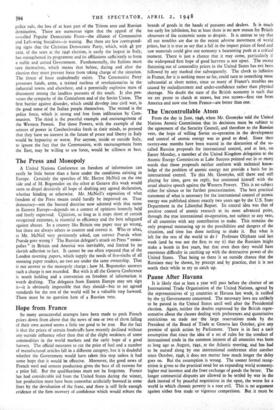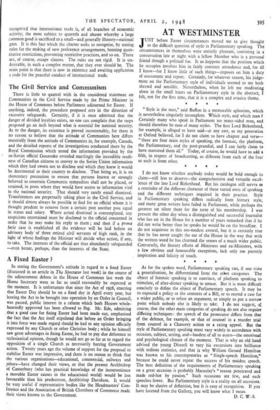Pause After Havana
It is likely that at least a year will pass before the charter of an International Trade Organisation of the United Nations, agreed by the representatives of 53 countries at Havana last week, is ratified by the 53 Governments concerned. The necessary laws are unlikely to be passed in the United States until well after the Presidential election. Again, neither the doubts expressed by the British repre- sentative about the clauses dealing with preferences and quantitative restrictions on trade nor the large reservations made by the President of the Board of Trade at Geneva last October, give any promise of quick action by Parliament. There is in fact a tacit assumption that since the idea of a set of rules for the conduct of international trade in the common interest of all countries was born as long ago as August, 1941, at the Atlantic meeting, and has had to be nursed along by one international conference after another since October, 1946, it does not matter how much longer the delay goes on. But the assumption is wrong. The sooner formal recog- nition is given to the practical need for an expanding world economy, higher real incomes and the freer exchange of goods the better. The longer commercial disputes are allowed to be settled by war in the dark instead of by peaceful negotiation in the open, the worse for a world in which chronic poverty is a root evil. This is no argument against either free trade or• vigorous competition. But it must be recognised that international trade is, of all branches of economic activity, the most subject to quarrels and abuses whereby a large common good is sacrificed to a small—and generally illusory—national gain. It is this fact which the charter seeks to recognise, by stating rules for the making of new preference arrangements, banning quan- titative restrictions, preventing restrictive practices, and so on. There are, of course, escape clauses. The rules are not rigid. It is un- desirable, in such a complex matter, that they ever should be. The main point is that there is now in existence and awaiting application a code for the peaceful conduct of international trade.































 Previous page
Previous page